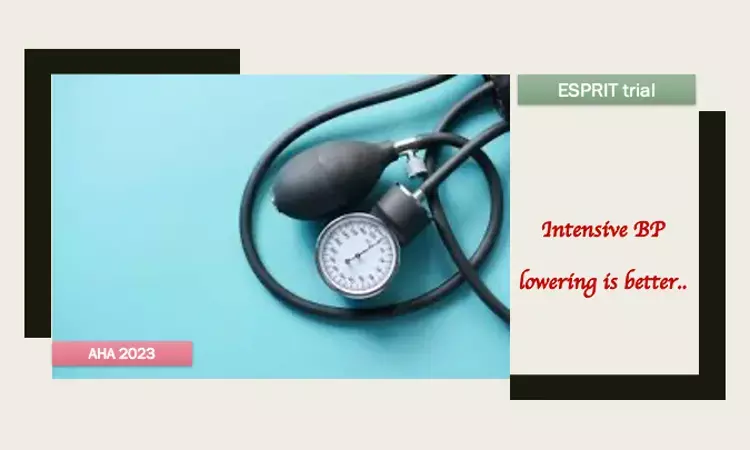- Home
- Medical news & Guidelines
- Anesthesiology
- Cardiology and CTVS
- Critical Care
- Dentistry
- Dermatology
- Diabetes and Endocrinology
- ENT
- Gastroenterology
- Medicine
- Nephrology
- Neurology
- Obstretics-Gynaecology
- Oncology
- Ophthalmology
- Orthopaedics
- Pediatrics-Neonatology
- Psychiatry
- Pulmonology
- Radiology
- Surgery
- Urology
- Laboratory Medicine
- Diet
- Nursing
- Paramedical
- Physiotherapy
- Health news
- Fact Check
- Bone Health Fact Check
- Brain Health Fact Check
- Cancer Related Fact Check
- Child Care Fact Check
- Dental and oral health fact check
- Diabetes and metabolic health fact check
- Diet and Nutrition Fact Check
- Eye and ENT Care Fact Check
- Fitness fact check
- Gut health fact check
- Heart health fact check
- Kidney health fact check
- Medical education fact check
- Men's health fact check
- Respiratory fact check
- Skin and hair care fact check
- Vaccine and Immunization fact check
- Women's health fact check
- AYUSH
- State News
- Andaman and Nicobar Islands
- Andhra Pradesh
- Arunachal Pradesh
- Assam
- Bihar
- Chandigarh
- Chattisgarh
- Dadra and Nagar Haveli
- Daman and Diu
- Delhi
- Goa
- Gujarat
- Haryana
- Himachal Pradesh
- Jammu & Kashmir
- Jharkhand
- Karnataka
- Kerala
- Ladakh
- Lakshadweep
- Madhya Pradesh
- Maharashtra
- Manipur
- Meghalaya
- Mizoram
- Nagaland
- Odisha
- Puducherry
- Punjab
- Rajasthan
- Sikkim
- Tamil Nadu
- Telangana
- Tripura
- Uttar Pradesh
- Uttrakhand
- West Bengal
- Medical Education
- Industry
Intensive BP lowering reduces MACE in Asian patients, including diabetics- AHA 2023

In alignment with the results of the landmark SPRINT trial, the recently presented ESPRIT trial at AHA 2023 conference reveals that among Asian hypertensive patients with a high cardiovascular risk, intensive treatment aimed at achieving a systolic blood pressure goal below 120 mm Hg is more effective in reducing major adverse cardiovascular events compared to a conventional goal of less than 140 mm Hg.
More importantly, the current trial includes individuals with type 2 diabetes or a history of stroke, who were excluded from the SPRINT trial. The ESPRIT involved 11,255 patients aged 50 or older with a systolic BP of 130 to 180 mm Hg, incorporating those with established cardiovascular disease or multiple risk factors. Overall, 39% of patients had diabetes and 27% a history of stroke.
The primary outcome was a composite of MI, coronary and noncoronary revascularization, hospitalization or emergency visit for heart failure, stroke, or CV death.
The intensive treatment group demonstrated sustained lower blood pressure readings, and the primary outcome was significantly lower in the intensive arm. Intensive treatment also reduced CV death and all-cause death, with safety outcomes better than expected, though a higher rate of syncope-related events was noted.
Findings were consistent across subgroups defined by baseline coronary heart disease, stroke, diabetes, and systolic BP.The trial's validation across multiple trials involving Asian patients supports the notion of aggressive blood pressure treatment.
Serious adverse events occurred in about 42% of patients in each group. Intensive treatment was associated with a higher rate of syncope and of emergency visits/serious adverse events related to syncope (0.5% vs 0.2%), but there were no differences between groups in other serious adverse events, including electrolyte abnormalities, injurious falls, or acute kidney injury/acute renal failure.
Clinical translation:
Deciphering the results from this trial, one can state that for every 1,000 patients treated to the intensive versus conventional systolic BP goal for 3 years, there would be 14 major vascular events and eight deaths avoided at the cost of three additional serious adverse events involving syncope.
“Our study generates new evidence about the benefit and the safety of treatment targeting systolic blood pressure below 120 mm Hg among [a] diverse Asian population, similar to what has been seen among individuals with other ethnic backgrounds", author Li noted at the conference.
Source: Li J. Effects of intensive blood pressure lowering treatment in reducing risk of cardiovascular events. Presented at: AHA 2023. November 13, 2023. Philadelphia, PA
MBBS, MD , DM Cardiology
Dr Abhimanyu Uppal completed his M. B. B. S and M. D. in internal medicine from the SMS Medical College in Jaipur. He got selected for D. M. Cardiology course in the prestigious G. B. Pant Institute, New Delhi in 2017. After completing his D. M. Degree he continues to work as Post DM senior resident in G. B. pant hospital. He is actively involved in various research activities of the department and has assisted and performed a multitude of cardiac procedures under the guidance of esteemed faculty of this Institute. He can be contacted at editorial@medicaldialogues.in.
Dr Kamal Kant Kohli-MBBS, DTCD- a chest specialist with more than 30 years of practice and a flair for writing clinical articles, Dr Kamal Kant Kohli joined Medical Dialogues as a Chief Editor of Medical News. Besides writing articles, as an editor, he proofreads and verifies all the medical content published on Medical Dialogues including those coming from journals, studies,medical conferences,guidelines etc. Email: drkohli@medicaldialogues.in. Contact no. 011-43720751


